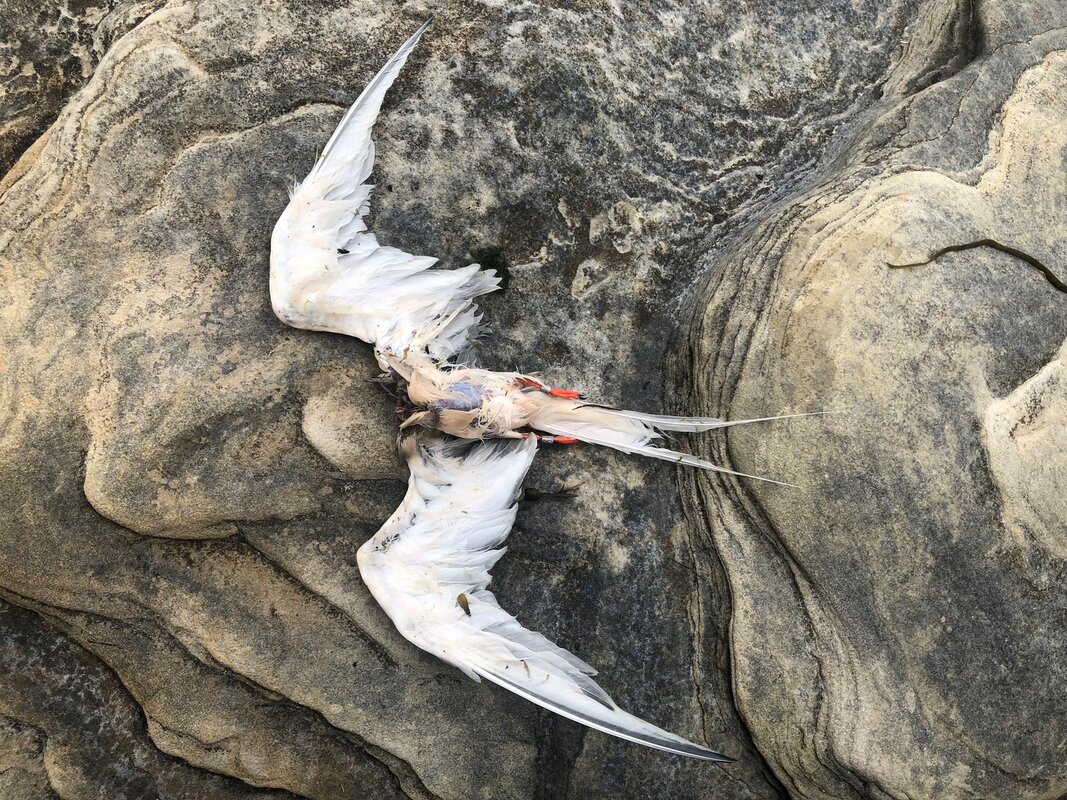|
With its long tail streamers, Roseate Tern is one of our most elegant seabirds and one of Britain’s rarest, so the sight of dead birds on the tideline and confirmation of high pathogenic avian influenza (HPAI) at our only colony was a bitter blow this week for those who have spent 20 years helping its population to recover. Just 150 pairs breed on Coquet Island in Northumberland, with a handful of nests elsewhere in the UK, including an occasional one on Anglesey. Seabird die-offs have been witnessed in Germany, The Netherlands, and France, as well as the south coast of England.
It is the latest bodyblow for seabirds, already struggling with the twin impacts of climate change and long-term declines in fish stocks. The list of species and number of colonies affected is lengthening. Initially confirmed in Great Skuas in Scotland, each day through June has seen more images of dead and dying birds, including Gannets, Sandwich and Common Terns, Guillemots and Razorbills. Testing to confirm HPAI has been sporadic, but the scale of gaps in colonies that should contain thousands of birds shows this is the biggest outbreak ever in wild birds. The disease jumped from farmed poultry to wild birds in east Asia in 2003, and more recently in Central Asia. Migration has brought HPAI to our shores with devastating consequences. Seabirds around the Irish Sea have been less affected to date, but it is impossible to know how this will play out. Wardens at tern colonies in Anglesey and Denbighshire report that chicks are fledging, and it is hoped that at least some will move way from mass gatherings in which the disease spreads rapidly. Rockabill island in Dublin Bay holds around 1700 pairs of Roseate Terns, so an outbreak there would be even more catastrophic. Meanwhile, the RSPCA has stopped accepting sick or injured seabirds to its rescue centres and several islands are closed to visitors, including the Farnes in Northumberland. The public are being urged not to touch dead or sick birds nor allow dogs to do so, and to ring Defra on 03459 335577 if you find three or more dead waterbirds, seabirds or raptors. Recent notable sightings include a Cattle Egret on the Alaw estuary, Quail at RSPB Cors Ddyga, up to 40 Mediterranean Gulls on Porthmadog’s Llyn Bach, Great White Egret and Green Sandpiper at RSPB Conwy, and a young Cuckoo at Cemlyn.
0 Comments
Leave a Reply. |
Bird notesA weekly update of bird sightings and news from North Wales, published in The Daily Post every Thursday. Archives
July 2024
Categories |

 RSS Feed
RSS Feed
